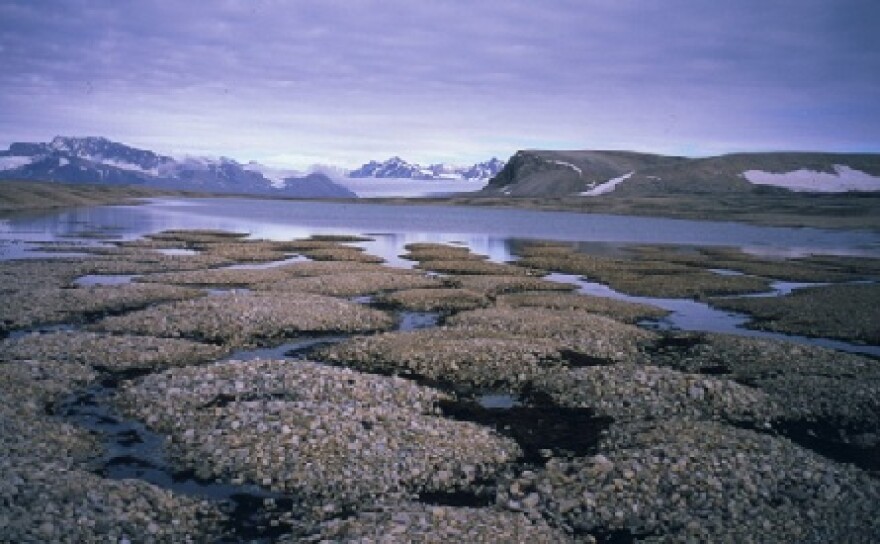The Arctic and Antarctic are the only places on Earth where permafrost is found. some scientists believe this frozen ground is disappearing because of climate change. Ted Schuur is an ecosystem ecologist with the Center for Ecosystems Science and Society.
"We believe that over long periods of time, hundreds of thousands of years, there's been sort of a state of permafrost that's been more or less constant," Schuur says. "It changes year to year and decade to decade, but now we're observing with current warming that seems to be coming from human activities, that permafrost is receding much faster now than it's changed in the past. So, this is a new phenomena. We just don't yet have a handle on how big this could be."
Schuur says deforestation and carbon and other emissions from the burning of fossil fuels are the primary reasons for greenhouse gases in the atmosphere. But, as the climate warms, permafrost thaws and carbon is released from the frozen ground. Schuur believes that could speed up climate change. He says, "One of the big research questions is how fast will that carbon enter the atmosphere? Is that going to happen in the next years to decades? Or is that something that happens over hundreds of years? This affects the pace of climate change and how we, as humans, adapt to it."
Schuur conducts research in Alaska digging up and warming frozen soil to understand what tundra might look like in the future. He and other scientists contribute their findings to the Permafrost Action Network to piece together a bigger picture of receding permafrost and how it's contributing to carbon in the atmosphere.




